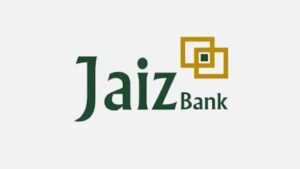


Excess liquidity: CBN’s policy shift spurs record bank deposits
By Esther Agbo
Nigerian banks’ deposits with the Central Bank of Nigeria (CBN) surged to a record N3.42 trillion last week, marking the highest weekly total in August.
This significant increase comes on the heels of a strategic policy adjustment by the CBN, aimed at addressing concerns over excess liquidity and its impact on the economy.
The CBN recently revised the Standing Deposit Facility (SDF) asymmetric corridor to +500/-100 basis points from the previous +100/-300 basis points around the Monetary Policy Rate (MPR).
This however resulted in an SDF rate hike to 25.75 percent, while the Standing Lending Facility (SLF) rate was adjusted to 31.75 per cent.
These changes were implemented shortly after the CBN’s Monetary Policy Committee (MPC) voted to raise the MPR by 50 basis points to 26.75 percent, while retaining the cash reserve ratio of deposit money banks at 45 per cent and merchant banks at 14 per cent and retaining the liquidity ratio at 30 per cent.
The adjustment to the SDF rate is a part of the CBN’s broader strategy to discourage banks from parking excess funds at the central bank, thus encouraging more lending to the real economy. By raising the cost of holding excess liquidity, the CBN aims to stimulate economic activity through increased lending, which could, in turn, support growth.
However, the impact of these changes is expected to ripple through the banking sector, influencing the cost of funds and, consequently, the interest rates banks offer on loans and deposits.
As banks reassess their liquidity strategies in response to the new SDF rate, lending practices and deposit interest rates are likely to be affected.
A day after the CBN’s announcement, banks deposited an additional N1.09 trillion, underscoring the immediate impact of the policy shift.
This influx contributed to the weekly total of N3.42 trillion, surpassing the combined deposits of N3.57 trillion recorded over the previous three weeks.
The CBN’s directive also specified that deposits exceeding N3 billion by commercial and merchant banks would now attract a reduced rate of 19 per cent, down from 25.75 percent, while deposits exceeding the amount will attract a lower rate of 19 percent for Commercial and merchant banks, while payment service banks will receive 25.75 percent on deposits up to N1.50 billion with amounts above this threshold earning 19 percent. These measures are designed to prevent banks from hoarding excess cash, which the CBN has previously identified as a key driver of inflation.
Moreover, recent data from the CBN reveals that currency in circulation hit a record N4.05 trillion in July 2024, further highlighting the central bank’s concern over excess liquidity. In response, the CBN continues to offer the Standing Lending Facility, a short-term liquidity solution for banks, which saw banks borrow over N3.02 trillion by the end of August.
Financial analysts, including those from Afrinvest, suggest that the CBN’s operational changes are likely to influence the financial markets, particularly in relation to Treasury bills (T-bills) and government bonds.
“Notably, the CBN has cut the interest rate on excess deposits by commercial and merchant banks above an initial N3.0 billion limit to 19.0 per cent, down from 25.75 per cent. This effectively lowers the theoretical floor for T-bills, assuming other factors remain constant.
“Lastly, we estimate N1.2 trillion inflows from maturing T-bills (N622.7 billion) and FGN bond coupons (N563 billion) to improve liquidity dynamics,” analysts noted.



